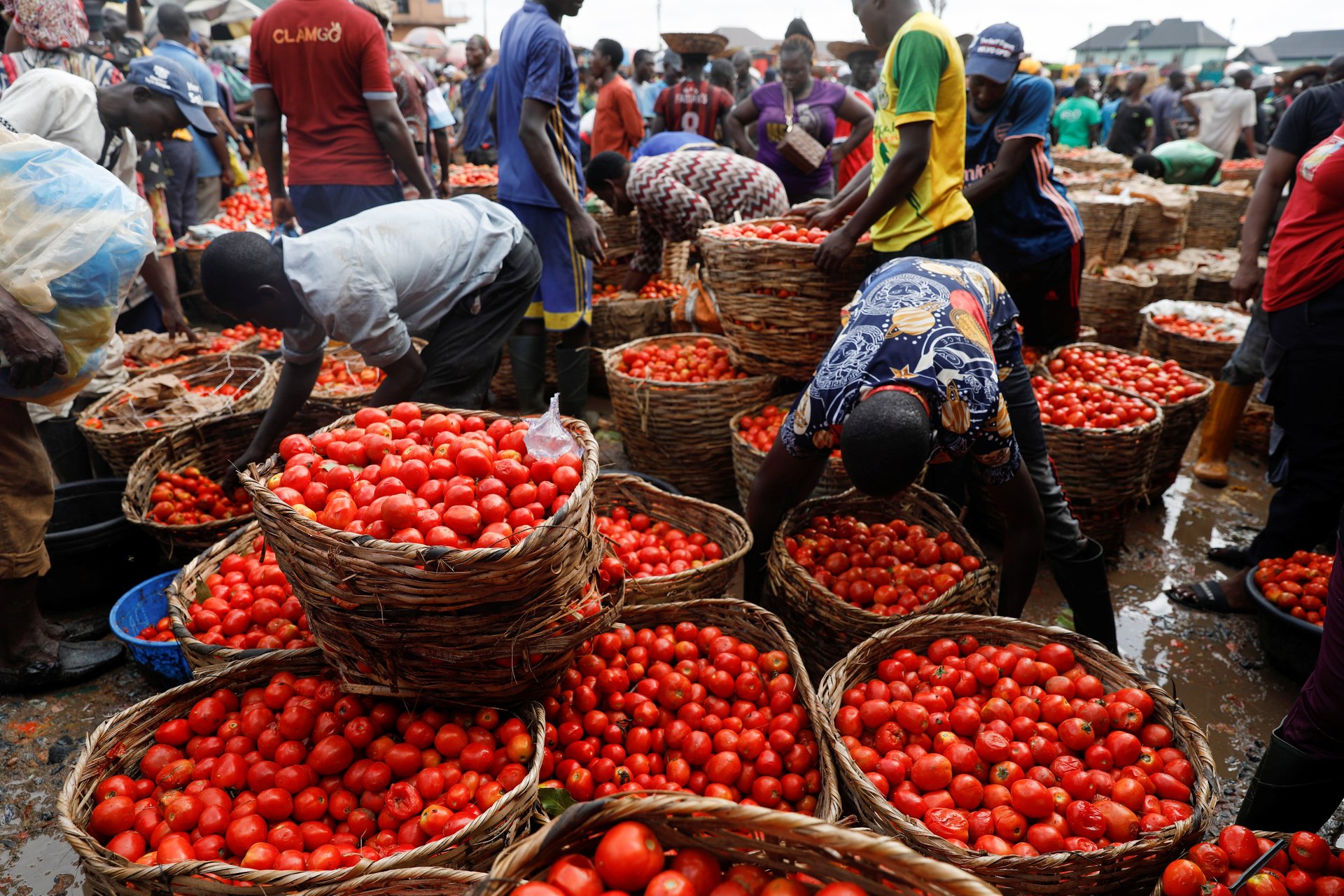Nigeria’s inflation rose for the sixth consecutive month to reach a 17-year high
Year-on-year inflation in Africa's largest economy was 19.64% in July 2022

The rise in food and airline ticket prices in Nigeria over the past year continues to show up in the data. In July, Nigerians paid 19.64% more for goods and services than they did in the same month last year, according to the latest inflation report (pdf) from the National Bureau of Statistics today (Aug. 15).
With that figure, Nigeria has now had six consecutive months of increased inflation. The July 2022 inflation rate is Nigeria’s highest since 2005.
A wave of rising inflation has affected many countries around the world this year. Rates have doubled in 37 of 44 advanced economies since 2020, Pew Research said.
In west Africa, Ghana and Nigeria stand out among the most affected, with Ghana seeking the IMF’s help after inflation reached a 19-year high of 29.4% in June. Inflationary pressures have seen Ghana’s central bank raise lending rates by 6.6% this year, according to McKinsey and Company. Only Argentina has raised interest rates by a higher figure.
Nigeria, still Africa’s largest economy, has not rapidly increased the lending rate this year as much as its neighbor has. But its statistics agency’s report shows president Muhammadu Buhari’s government is struggling with a year-long battle to tame rising prices, and arguably suffering the knock-on effects of previous policies like the two-year closure of land borders.
July’s rate conformed with analyst expectations. “The covert adjustment in gasoline prices and the elevated energy prices in rural areas were the major drivers of inflation,” said Ibukun Omoyeni, an economist at Lagos-based Vetiva Capital, a fund management and securities firm. Gasoline prices increased in Nigeria mid July though it was not officially announced. It appeared to emerge from an agreement between federal government officials and oil marketers.
Supply chains for food raw materials imports into Africa continue to be impacted by Russia’s war in Ukraine, so competition for alternative resources among local producers remains high. Food prices in Nigeria were 22.02% higher in July than same month last year. Items most responsible for this food inflation were bread, cereals, tubers, meat, fish, oil, and fat, the statistics agency said.
